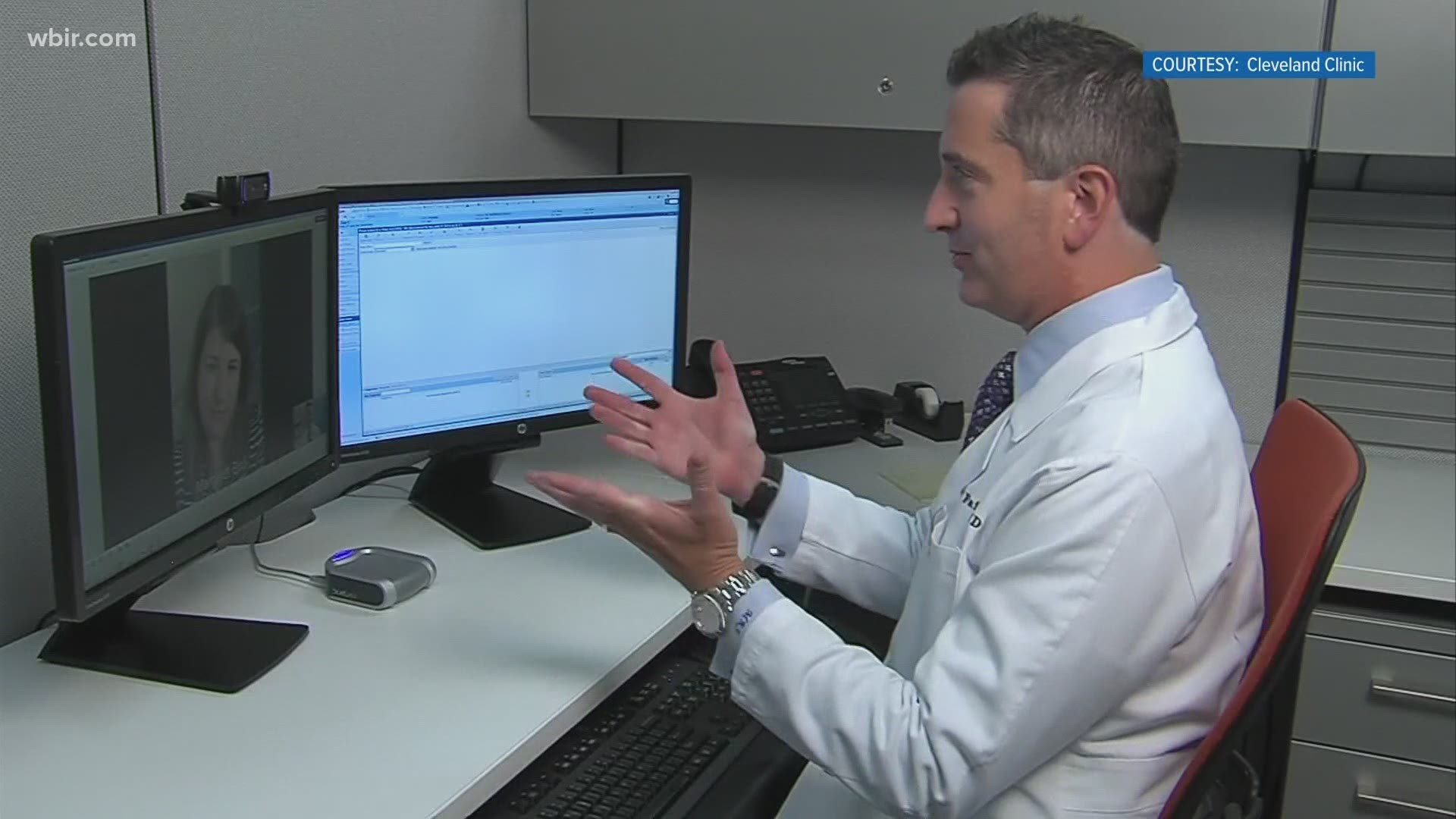KNOXVILLE, Tenn. — One year into the pandemic, more people are reaching out for mental health help. Access to telehealth appointments means more patients are able to get the help they need.
According to the Tennessee Department of Mental Health and Substance Abuse Services, about 125,000 people called the state crisis line last year alone.
For some families, telehealth means opportunities to stay safe and get the help they need. Elizabeth Allman, a mother, has used the virtual service for her own doctor's visits. Her 6-year-old son is able to use teletherapy.
"It is been what I would consider a godsend," Allman said. "He's still able to talk to someone, he's still able to see the person's facial reaction, he's still able to hear the tone in their voice."
She believes logging on is keeping them both safe in a time when mental health is top-of-mind. She's not alone.
The emergency order issued in 2020 for Tennessee to allow more insurance and Medicaid coverage for telehealth has encouraged more people to take advantage of virtual medical appointments.
"It definitely has been a game-changer, I really hope it is around to stay," Dr. Benjamin Huff with Summit Medical said.
Huff believes the changes have made mental health services more accessible and that telehealth coverage shouldn't stop.
RELATED: The Doctor Will Zoom You Now: BlueCross commits to covering online medical consults from now on
"I would probably think that most insurance companies would have a huge disappointment in the patient population if they took it away because I know so many people have appreciated it," Huff said.
According to the CDC, the number of adults diagnosed with a mental health condition went from 20 percent to 41 percent during the pandemic.
"It's a twin pandemic. We have had a doubling of adults with an adverse psychiatric condition, because of the pandemic, and they're not going to go away," Ben Harrington, the CEO of the Mental Health Association of East Tennessee said.
MHAET found that around 7,000 more people took their free mental health screening last year.
Usually, the number of respondents is 3,300. During the pandemic, it went up to 10,712. Most people put loneliness and past trauma as reasons for taking the screening.
"We've got an urgent need to be able to surge our capacity to serve more people," Harrington said.
Tennessee is getting more federal funding in the new COVID-19 relief package, and leaders said that money will likely go to creating health centers and putting more dollars into mental health resources.
If you have an immediate emergency, dial 911.
If you need mental health help, you can call the state crisis line at 855-CRISIS-1, (855-274-7471) or text "TN" to 741-741.
The National Suicide Prevention Lifeline is 800-273-8255.
Anyone who wants one can also take a free mental health screening here.

